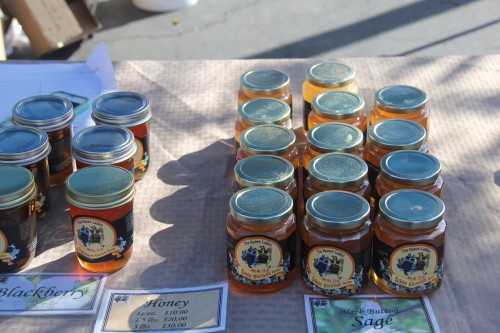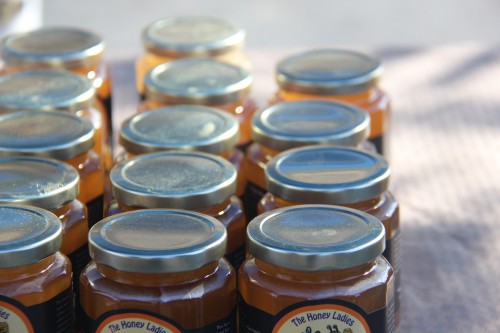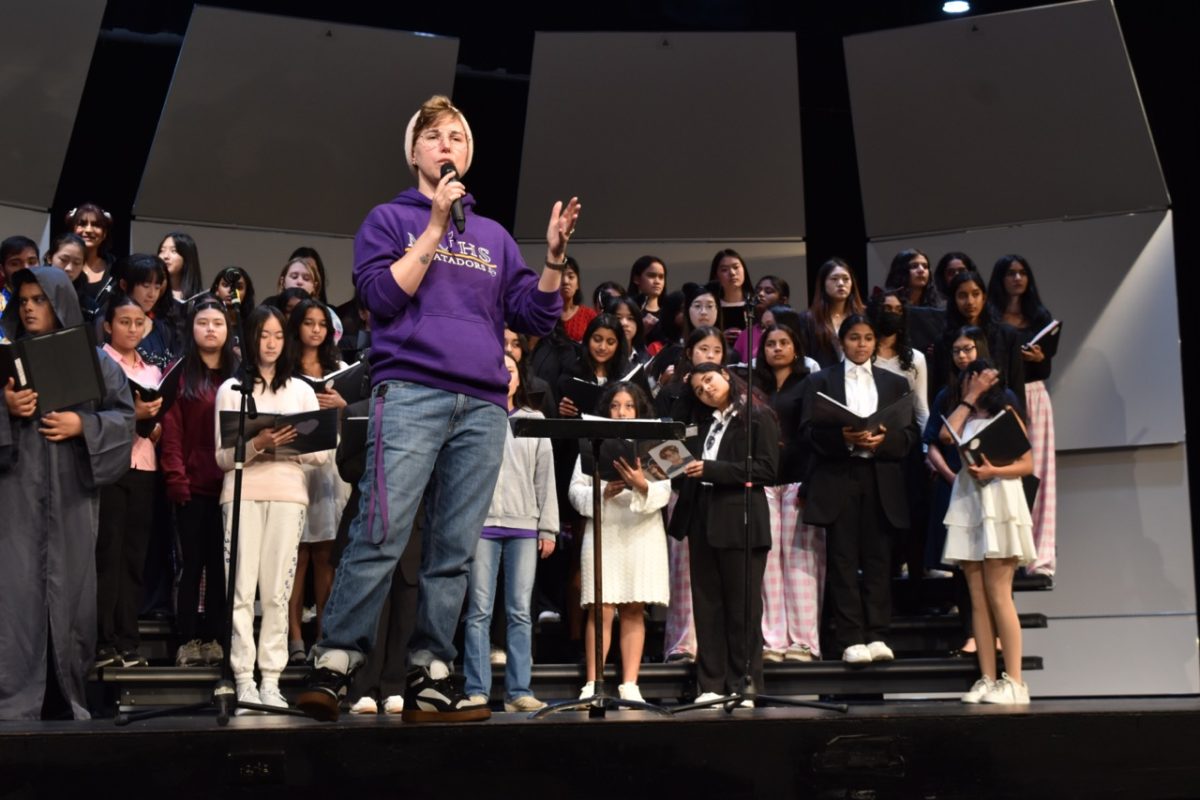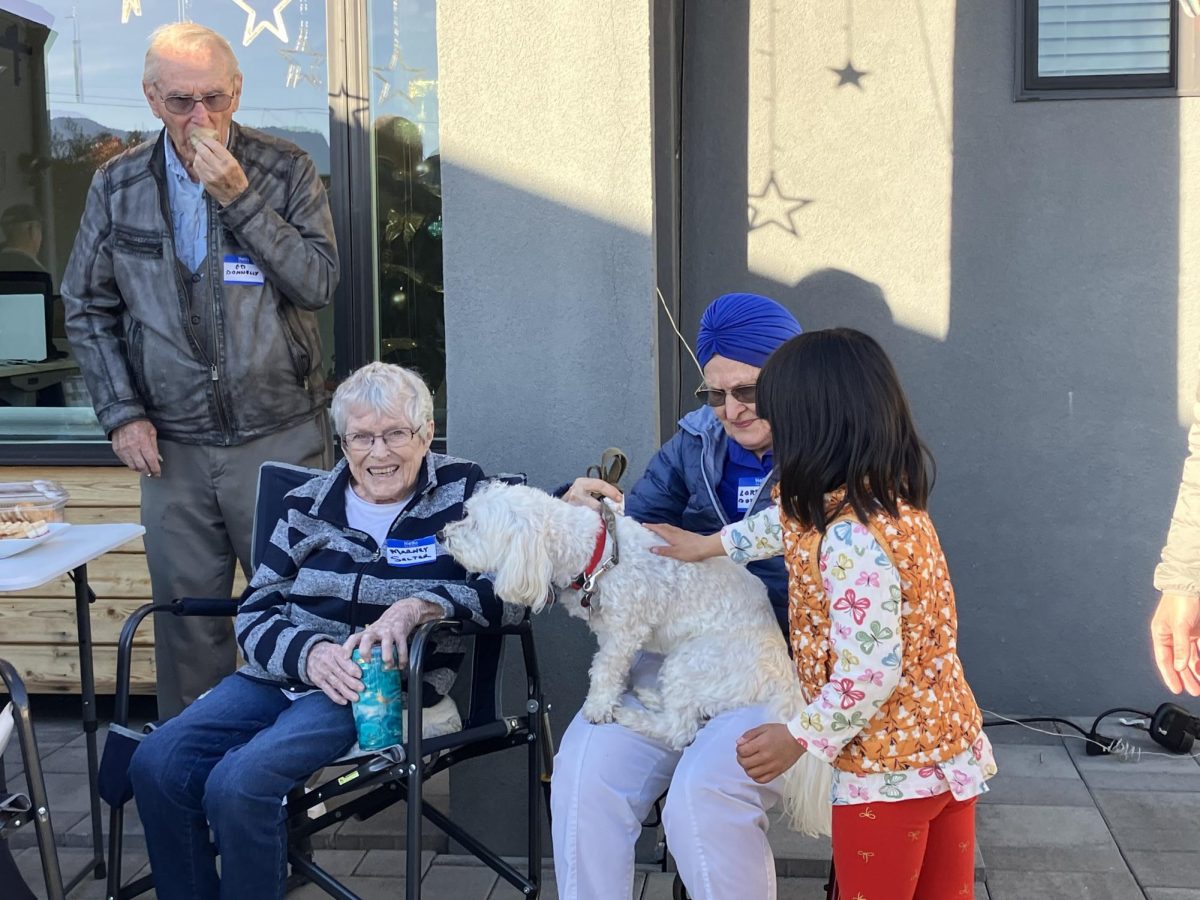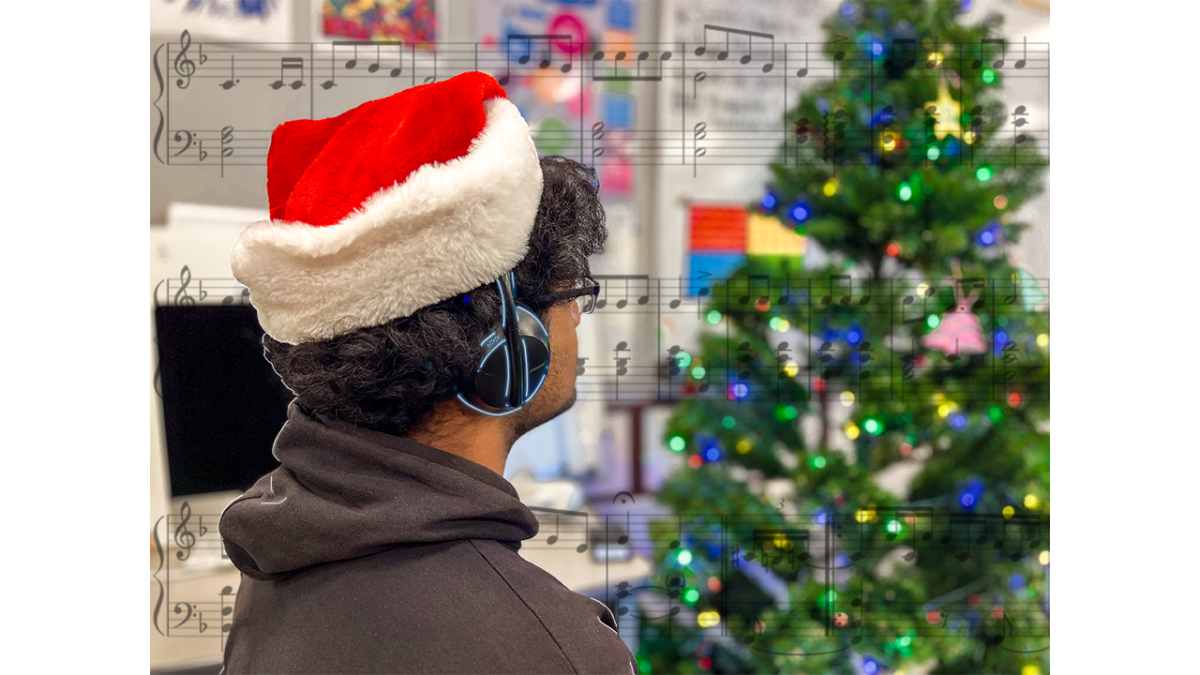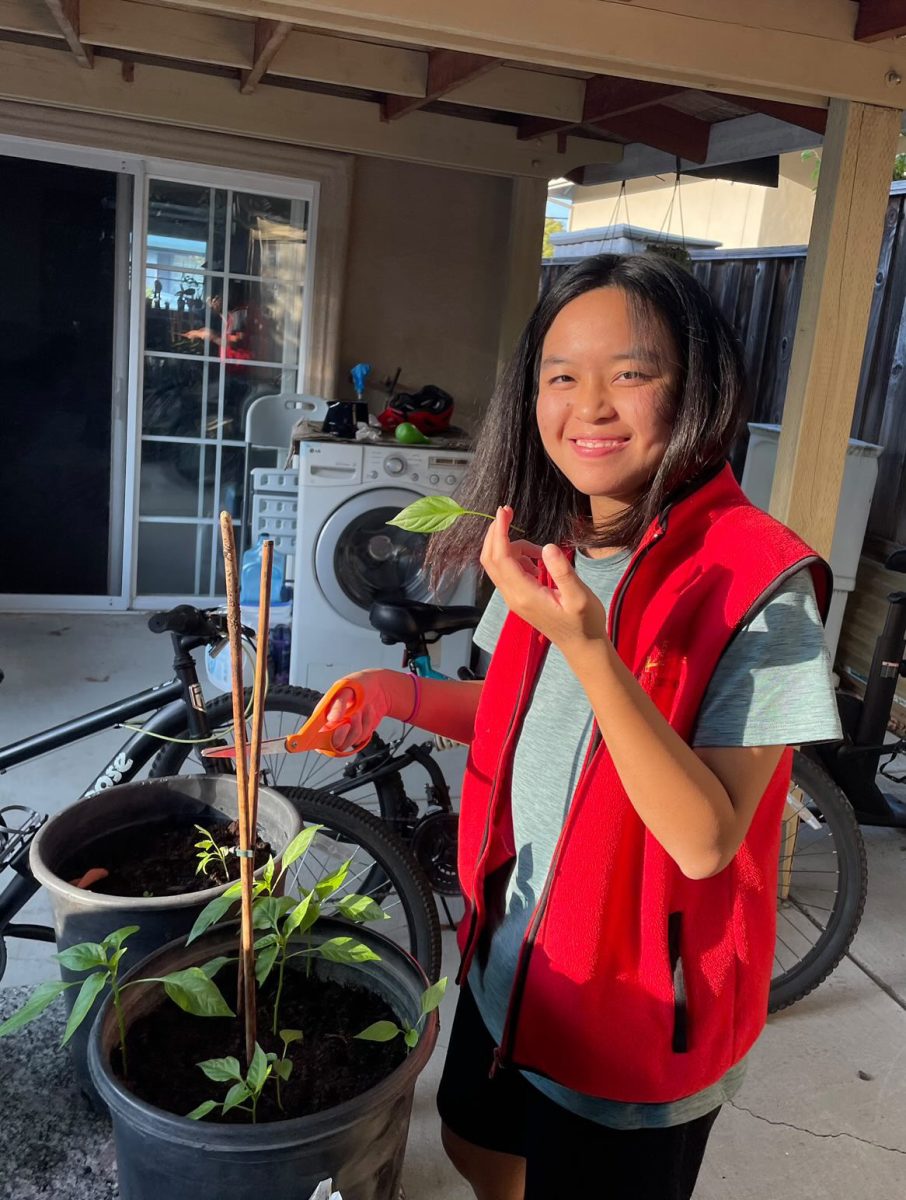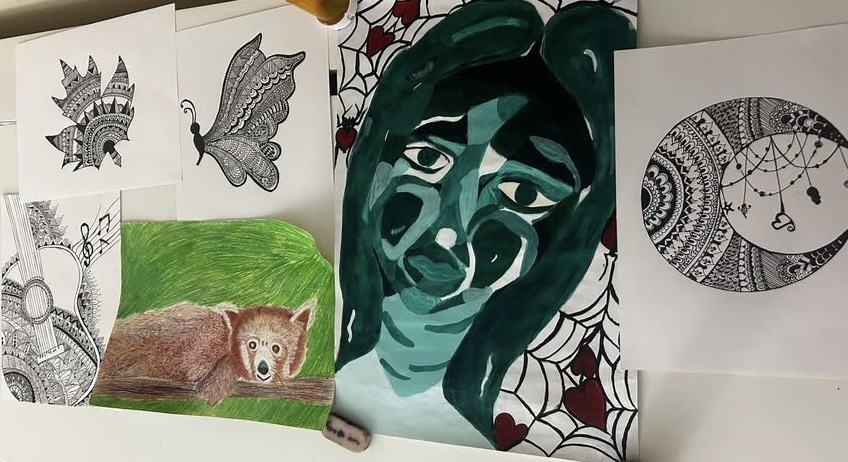Reporting and photos by Kristin Chang.
When beekeeper Wendy Towner speaks, there is no hesitation. She knows her honey, she knows her bees and she’s proud of them both: She speaks enthusiastically to a customer, who weighs one of the amber-hued jars in her hand. In rows along the sun-warmed white table, the jars vary in shade, tone and consistency. Sage and orange blossom are among this golden-lidded, stained-glass-esque array.“This honey is produced all in the Bay Area,” Towner said. “They’re spread out all over. We’ve got about twelve other hives, and usually our locations has about fifty to a hundred hives.”.
When she says “our location,” she’s referencing her aviary. There, young hives are monitored until they have matured and stabilized. After that period of adolescence, they can be rented out to anyone who happens to want a hive.
“There are some people who have a backyard fruit orchard or vegetable garden and would like to have more pollination,” Towner said. “They notice that they don’t have enough bees in their garden and aren’t getting the fruit and vegetables they need … so they have the option to rent a hive from us.”
The banner that blocks the sun behind her proudly advertises their Rent-a-Hive business.
“They get to keep part of the honey,” Towner said, smiling. “And so it benefits them and it benefits us.”
Towner is quick and knowing when answering inquiries: After being asked how honey acquires its many flavors, she begins explaining even before the end of the question.
“What happens is, the honey changes flavor when you concentrate the flowers that are in front of the bees,” Towner said. “They’re not going to fly farther than they have to. So the bees will then go to the blackberry flowers and come back to the hive with their pollinated nectar.”
She grabs a jar and immediately begins dispensing samples on toothpicks. In the sun, the honeyed drops are nearly glowing.
“And that’s how you get honey,” Towner said. She’s authoritative, and she should be: As a second-generation beekeeper, she learned almost all of what she knows about the bees and the business from her parents. It’s more than just a hobby. It’s a legacy, especially because her family has been selling and presenting at farmers’ markets for over thirty years.
“My mom’s still doing farmers’ markets,” Towner said. “You should say ‘Hi’ some time.”
In cities where artificial fertilizers and grocery-shelf synthetic sweeteners seem to favor convenience over quality, the Towner family’s commitment to honey-out-of-hive defines a rarer community. Their work is made all the sweeter when they smile and say ‘Hi’ to the customers who directly purchase their (often literal) fruits of labor. A sign by the parking lot promises “field to table!” More accurately, the relationship is hand to hand. Where the makers and the eaters can shake hands over the same table.
As potential customers pass by, Towner grants one last piece of advice:
“[Bees are] not yellow jackets. People are afraid of bees, not because of the fault of the bees but rather the fault of the yellow jackets,” Towner said seriously.
“Yellow jackets give bees a bad name.”
Click here or here to read more about the West Coast Farmers’ Market…


